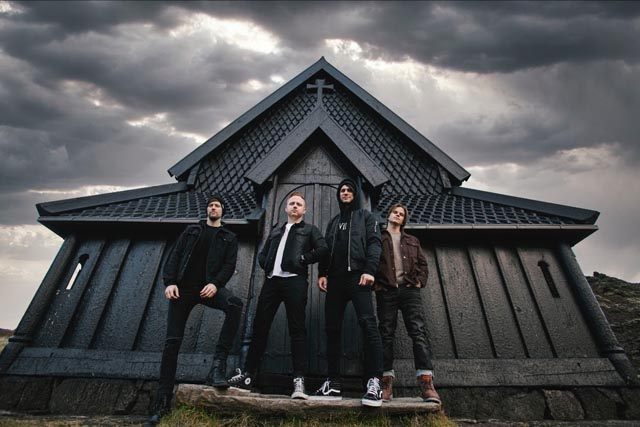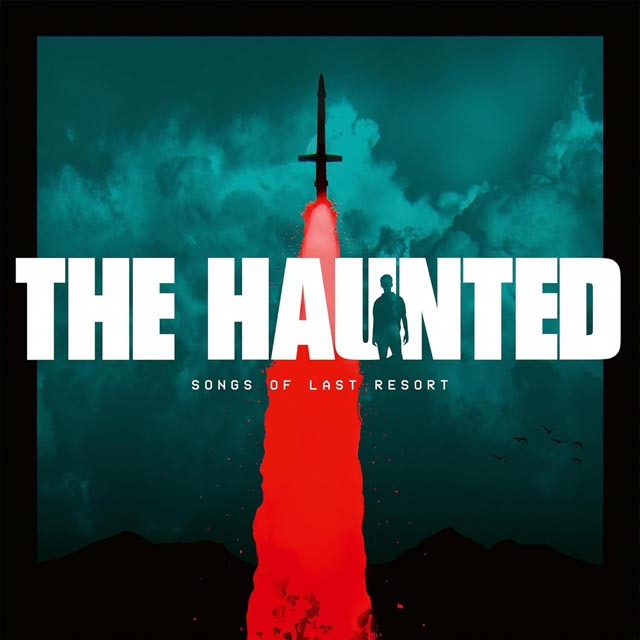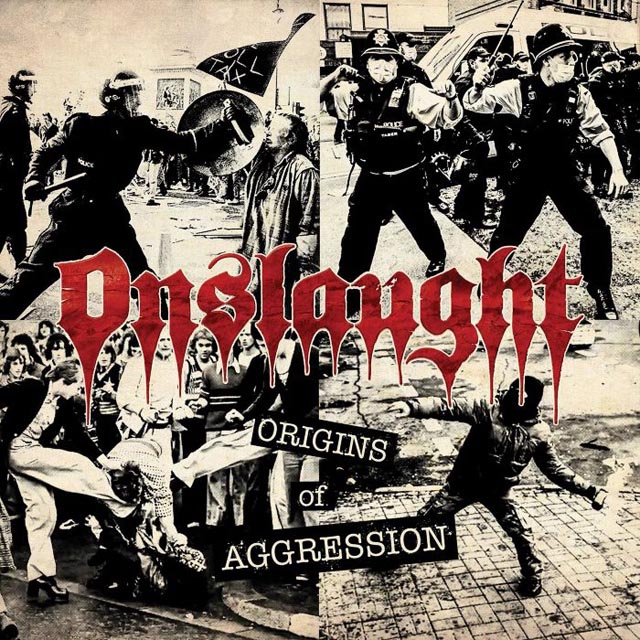 Lamb of God’s first theatrical release, As the Palaces Burn, begins as it ends, in Richmond, Virginia. As gritty footage of the blue collar state capitol fills the screen, vocalist Randy Blythe scrambles onto a bridge and makes his way over the James River. Describing himself as a “dirtbag down by the river,” he states he lived there for a bit in between homes. As the Palaces Burn would have worked as a rags to riches tale about the rise and success of Lamb of God, or as it’s original intent, a story about the worldwide fan base the band’s built up. However, it’s what happened in between that makes the documentary compelling. And while any metal fan followed the saga as it happened, it’s still an entertaining film that will satisfy not only Lamb of God fans, but those interested in the legal system.
Lamb of God’s first theatrical release, As the Palaces Burn, begins as it ends, in Richmond, Virginia. As gritty footage of the blue collar state capitol fills the screen, vocalist Randy Blythe scrambles onto a bridge and makes his way over the James River. Describing himself as a “dirtbag down by the river,” he states he lived there for a bit in between homes. As the Palaces Burn would have worked as a rags to riches tale about the rise and success of Lamb of God, or as it’s original intent, a story about the worldwide fan base the band’s built up. However, it’s what happened in between that makes the documentary compelling. And while any metal fan followed the saga as it happened, it’s still an entertaining film that will satisfy not only Lamb of God fans, but those interested in the legal system.
Lamb of God’s rehearsal space looks as boringly post-industrial as the rest of Richmond. But inside it’s unassuming walls, the band get ready to undertake a world tour. Text describes that the decline in the music industry has forced the band to continue to tour despite their chart success. Showing the band not as metal gods, but as humans that have a job to do just like everyone else is one area where the film excels, even as talking heads like Slash discuss the importance and relevance of the band. The first half hour of the film contrasts moments like Mark Morton playing basketball in his backyard with his daughter and Chris Adler packing his drum equipment into a Prius with the fanaticism of fans in Colombia, Israel and India once their world tour starts.
“It’s our music, but it’s their night,” Willie Adler says about the fans. And that’s really the pull quote for what the film directed by Don Argott, was initially supposed to be about. We meet Oscar Castaneda in Columbia, a cab driver who threw himself into his work and listening to metal to escape the pull of drug cartels. We see him listening to cassettes (yes, cassettes) at home and realize just how global the band’s reach is. At the band’s May 2012 show in Bangalore, India, we meet people that have traveled up to 39 hours by train to see the show. The film also introduces us to Pratika Prabhune, who’s literally moved to tears by the band. Every struggle that metalheads have in America are amplified in India, where she’s looked an outcast for wearing metal shirts and singing in a metal band. Amidst all of the band’s world traveling, the film somewhat awkwardly shoehorns Blythe’s past struggles with alcohol amidst the travelogue, flashing back to 2005’s Killadelphia DVD and showing him at his worst. And while the interlude showing how much of a calmer, saner person he is now that he’s sober is seemingly out of place, it makes sense later in the film.
It’s no spoiler alert to suggest that about half an hour in, the tone of the film changes dramatically as Blythe is detained in Prague on suspicion of manslaughter after fan Daniel Nosek died following stagediving at a Lamb of God show in 2010. It’s here where the film becomes slightly less compelling for those that followed along back in 2012 and 2013. Since Blythe was held for a month in prison, Argott has as little access to him as any fan did. What it does underscore, however, is how committed to the band is to their fans, if the first half hour didn’t already stress that. When talking about Nosek’s death, the band’s John Campbell is on the verge of tears over his unfortunate death.
Another thing the film does is give it’s viewers a front row seat to Blythe’s subsequent trial. And while we at home know how it played out, there’s definitely a degree of drama regardless. Will Blythe’s drunken moments on the band’s past DVD’s come back to haunt him? What kind of testimony will those at the show give? Hearing Nosek’s uncle address the court, as well as Blythe, brings home how sad the whole incident was. Blythe’s book that he’s working on is sure to be more insightful about his time in prison and his thoughts on the trial, and As the Palaces Burn will likely best serve as a companion piece to his book, which is due out later this year. But for a look at one of metal’s most successful bands and how they handled a life-changing situation, this is definitely a unique film. And while non-fans of the band aren’t as likely to see it, it’s message of the global appeal of music and the trial that interrupts the original idea of the film are compelling enough for non-metal fans to enjoy it.
As the Palaces Burn will be in theaters worldwide starting on February 27th. For a complete list of theaters, click here.






